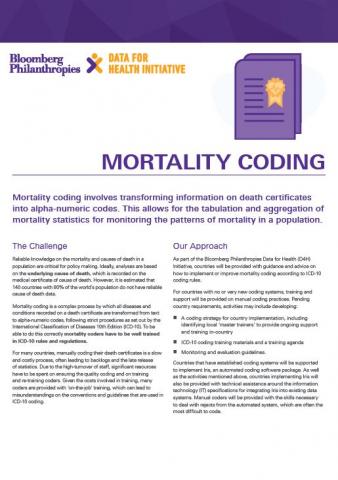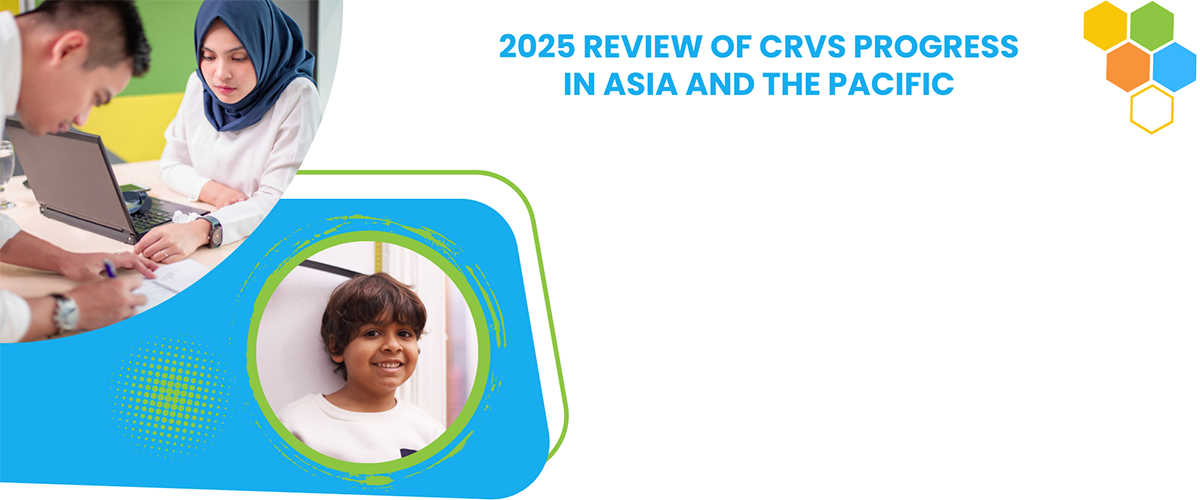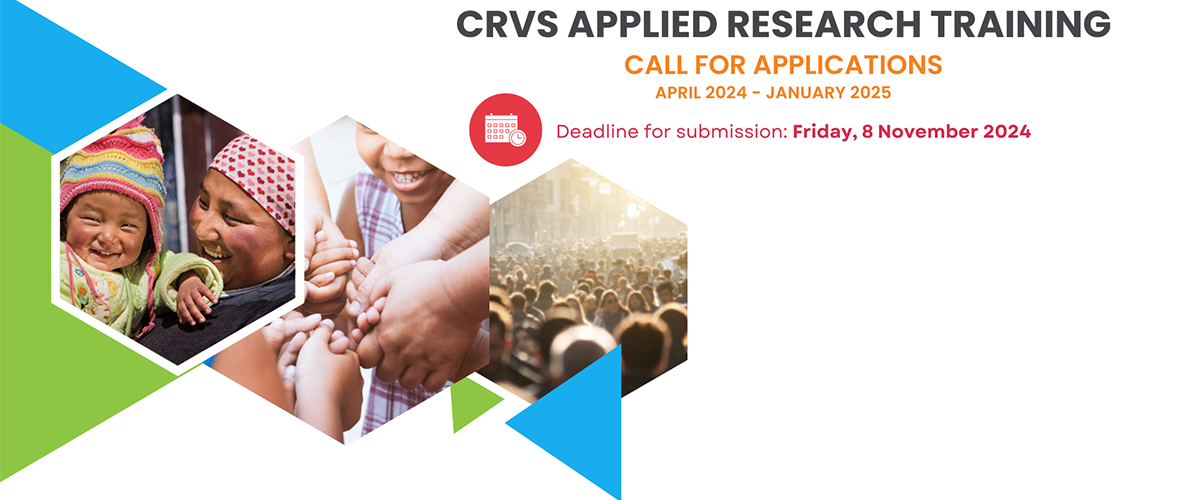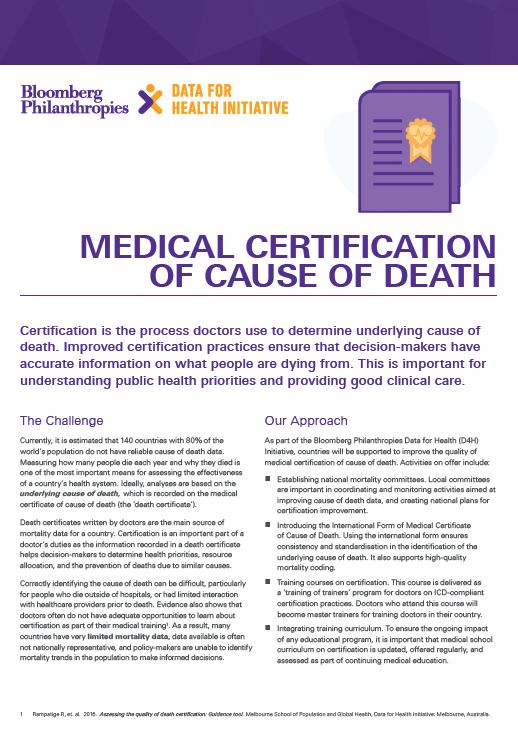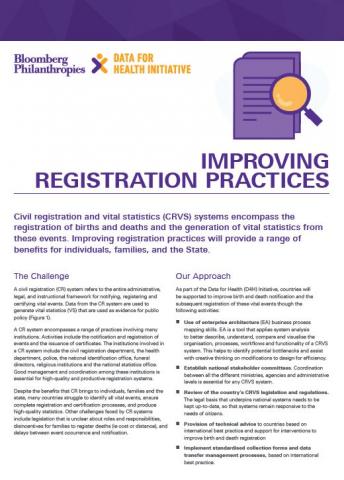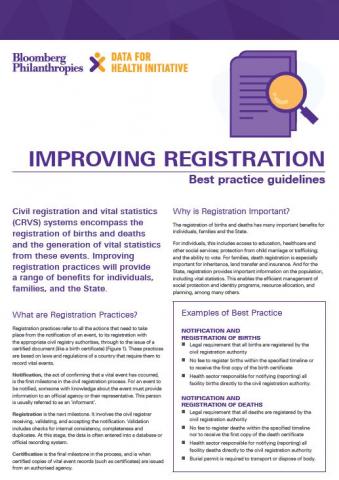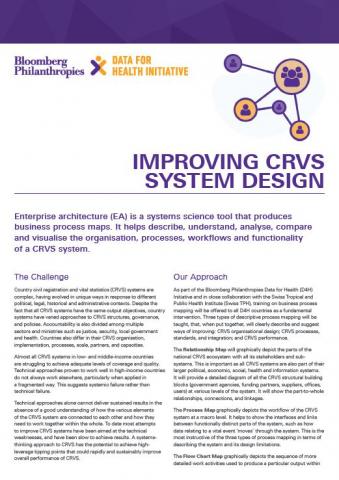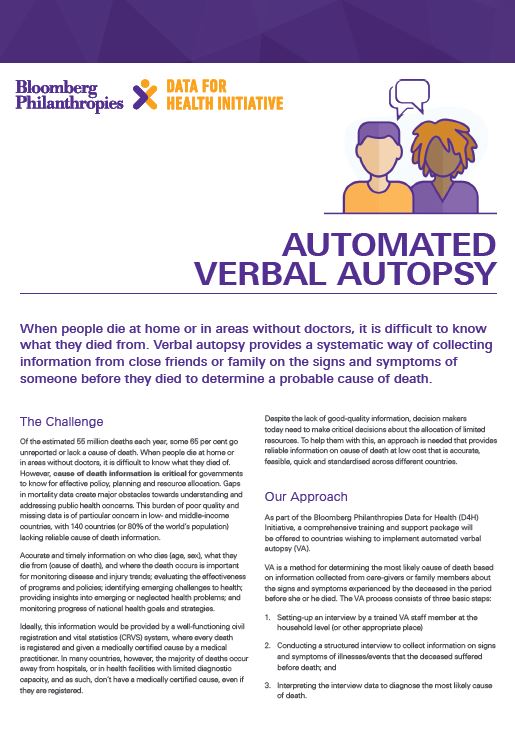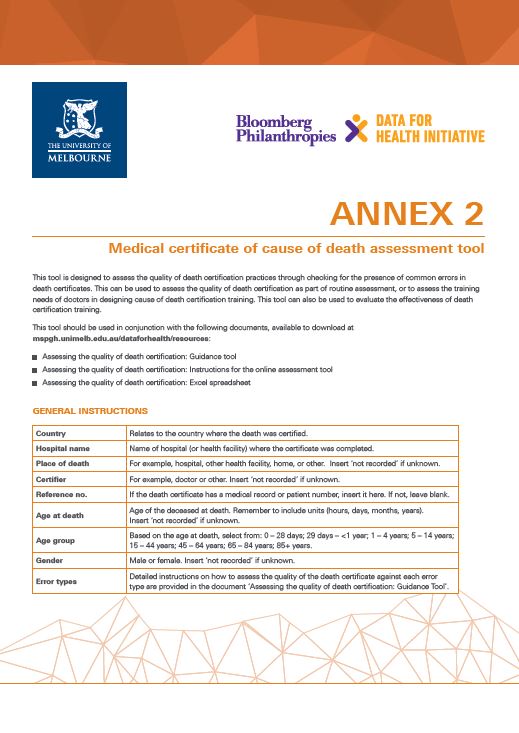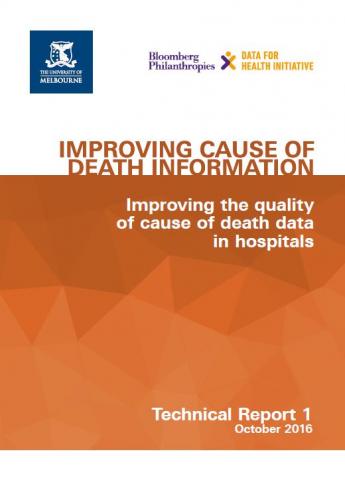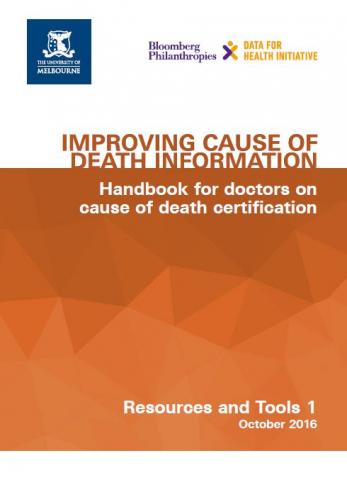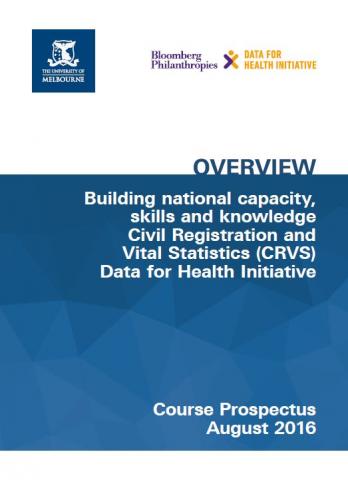Mortality coding
Mortality coding involves transforming information on death certificates into alpha-numeric codes. This allows for the tabulation and aggregation of mortality statistics for monitoring population health. As part of the Bloomberg Philanthropies Data for Health (D4H) Initiative, countries will be provided with guidance and advice on how to implement or improve mortality coding according to ICD-10 coding rules.
